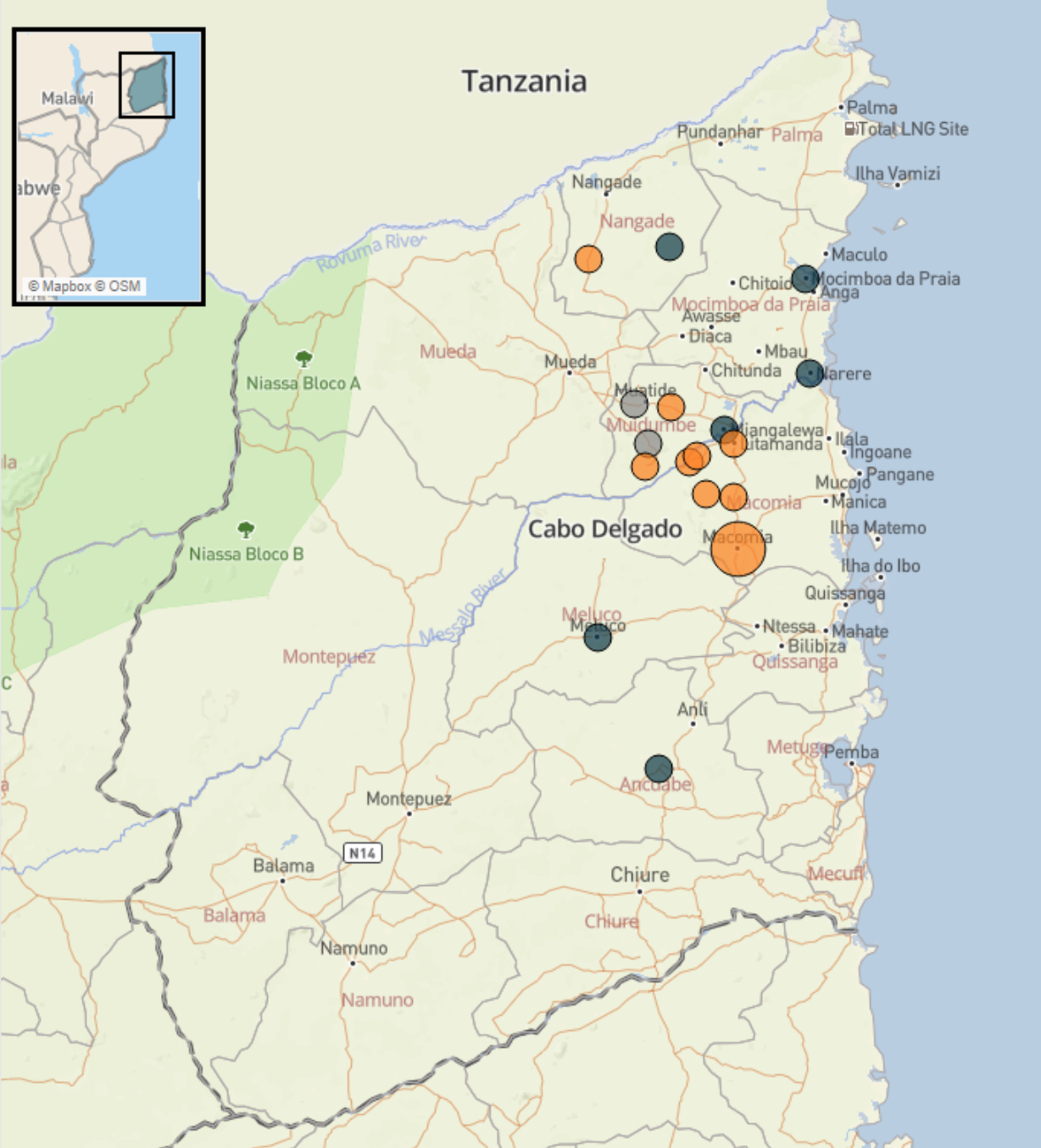Jean-Christophe Rufin’s ‘Report on the socioeconomic, humanitarian and human rights situation in the Palma-Afungi-Mocímboa area’ gives some clues to TotalEnergies’ view of the security situation in the province, and how the firm relates to that. However, they are just clues, as the report pays little overt attention to security issues and their impact on the population. Just four pages are devoted to “conflict factors” and “current security and humanitarian situation.” In contrast, 15 pages are devoted to a review of project work in the community funded by the firm, and another 15 to examining outstanding resettlement issues. Understanding the firm’s current posture in the province, as it may be influenced by the report, is hard to gauge. The terms of reference can only be guessed at, while there is a lack of clarity over how the report fits into the firm’s existing statutory requirements regarding business and human rights.
Rufin’s mission was initially described as being “an independent mission to assess the humanitarian situation in Cabo Delgado province,” and to “evaluate the actions taken by Mozambique LNG and … propose any additional actions to be implemented, if required.” In truth, the mission focused on Palma and Mocímboa da Praia districts, with some, if little, attention paid to Mueda. This reflects the remarks of TotalEnergies CEO Patrick Pouyanné after a meeting with President Filipe Nyusi in Maputo in February 2022. At the time, he said that “[w]hen you see that life is back to normal, with state services and population, then the project can start over.” In his reported remarks, he was referring specifically to Palma, Mocímboa da Praia, and Mueda districts.
This piece is from the Cabo Ligado Monthly: May 2023

The inclusion of Mueda is puzzling. Between Palma and Mueda districts lies Nangade district, for which ACLED has recorded 155 incidents of violence targeting civilians since October 2017. For Mueda, by contrast, just 12 such incidents have been recorded. The road back to normality is clearly longer in Nangade than in Mueda. Why conditions in Mueda district, far from the project site, and not Nangade, are so critical to TotalEnergies is not explained.
The report is notable for the absence of accurate data related to the conflict, and consequently, its impact is misrepresented. The report’s first paragraph mistakenly places the insurgents’ initial assault in October 2017 in Palma, not Mocímboa da Praia. The 1 January 2021 assault on the resettlement village of Quitunda, which sits just outside the project site, is not mentioned, though it led to the suspension of construction work and the evacuation of staff and contractors.
Data for more recent times, when the rate of incidents has subsided significantly, understates levels of political violence. The report states that “attacks on roads and villages (mainly for food) were again carried out in February [2023] by small armed groups.” In the context of the report, this statement points to a continuing threat in the province. Yet though the threat has considerably receded, the report misrepresents political violence in the province that month. For February 2023, ACLED records 19 political violence events in Cabo Delgado, including one in Palma district, and three in Mocímboa da Praia district. Two of the three incidents in Mocímboa da Praia were clashes between insurgents and Rwandan forces. The incident in Palma district was a clash between insurgents and Local Forces. It is hard to determine how many of the 19 incidents were supply raids by the insurgents. There were, however, at least two incidents of insurgents buying food from villagers, in the district.
While the conflict has significantly subsided, there have been significant changes amongst conflict actors since the international intervention in 2021. Local Forces and FDS remain the most significant actors. For the first five months of 2023, ACLED data show that Local Forces directly clashed with insurgents 12 times. The FDS was involved in 20 clashes in that period, with a spike in May. Southern African Development Community Mission in Mozambique (SAMIM) and Rwandan forces were involved in 11 clashes over the five-month period. The Rwandan presence in Palma and Mocímboa da Praia will remain significant, yet how the firm's relationship with those forces is managed is not addressed in the report.
The report identifies the relationship with Mozambique Defense Armed Forces’ Joint Task Force (JTF) as a significant risk for TotalEnergies, stating that any “permanent link” with the JTF could make the firm a party to the conflict under international law. However, there are other obligations to manage its relationship with security actors. The firm currently manages human rights risks related to security through its obligations under France’s Loi de Vigilance, or Vigilance Law of 2017, which is based on the United Nations Guiding Principles on Business and Human Rights. TotalEnergies reports on its obligations under this in some detail. The firm also has a commitment to upholding the Voluntary Principles on Security and Human Rights (VPHSR). Under the latter, the firm has considerable engagement with the FDS. Again, this is reported on regularly.
A curiosity of the Rufin report is that it is presented without any reference to the firm’s obligations, and ongoing actions under these frameworks. In Mozambique, they have been considerable. In 2022 alone, the firm trained 2,515 members of the FDS and 42 private security company personnel in VPHSR. Many of these were from the JTF. As the firm reviews its relationship with the JTF, it may need to consider how it structures its relationship with Rwanda’s security forces, and the increasingly important Local Forces.










